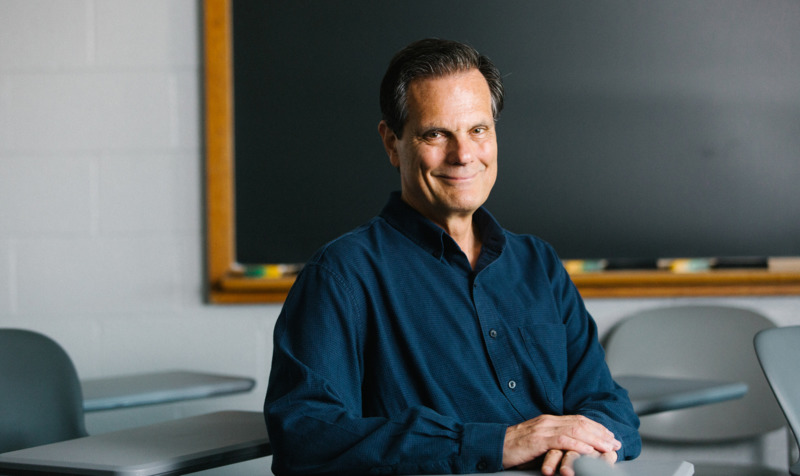Education
- Ph.D. 1996 – University of California at Berkeley. Educational Psychology and Human Development, emphasis in School Psychology
- M.A. 1987 – University of San Francisco, Counseling (School, and Marriage and Family)
- B.A. 1981 – San Francisco State University, Geography
Areas of Expertise
- Coaching, Consultation and Professional Development
- Implementation Science
- Social Innovation Research Focusing on Promoting Children and Youth’s Wellness, Flourishing, and High Performance
- Education in Informal Settings (e.g., Sports, Outward Bound, Parent Groups)
- Social Innovation and Entrepreneurship
Background
Steve Knotek is a psychologist trained as a practitioner and as a researcher in the areas of prevention, thriving and social innovation. His interests have been heavily influenced by his professional experience working with children, youth and families in formal and informal educational settings. Prior to becoming a professor he worked in a children’s museum, as a therapist for seriously emotionally disturbed children and adolescents in an inner-city community, and then finally as a psychologist serving minority students in underserved rural counties. This work highlighted for him the resilience and competence inherent in children and youth, their families, and their caregivers. As a museum educator he was privileged to see children learn to love the pursuit of knowledge by actively using the tools and methods of science to solve problems and understand nature. Working as a therapist highlighted the community and cultural wealth families possess and how they can use this wealth to navigate and succeed in demanding urban settings. Finally, as a school psychologist he was able to collaborate with professionals and parents who shared the same overarching goals for promoting the success of their students’ academic and social-emotional functioning in and outside of school settings.
Research
Knotek’s primary research focuses on how positive youth development, for adolescent and young adults aged 12 to 25, can be promoted with carefully designed programming in various educational settings. Integrating proven protective and thriving factors, such as supportive mentoring and the promotion of social problem-solving, distress tolerance, empathy, and emotional self-regulation, into the fabric of a program can yield important outcomes such as academic achievement and maintaining positive social relationships. Currently, Knotek is investigating how theater-arts programs (e.g., Theater Arts Programming as a Context to Support Positive Youth Development through Human-centered Design and Partnership) and campus ministries (e.g., “Like a Second Home”: A Campus Ministry as a setting for positive youth development and adulting after COVID), can be intentionally leveraged to promote positive youth development.
Knotek is a founding creator of the Bridging English Language Learning and Academics (BELLA) program, which provides a teacher collaboration model, a coaching framework, along with high-impact literacy strategies. ESL and classroom teachers collaborate and align instruction in the use of high-impact literacy strategies to support the academic success of English learning children in grades K-1. Knotek’s main responsibility in the program has been to create the Implementation Coaching model that promotes the field-based professional development of participating teachers. Learn more at bellapd.org.
In a related vein, Knotek is studying how post-secondary theater arts (e.g., Non-Cognitive Skills, Mentoring, and Successful Trajectories of Talent Development in Theater Arts) and athletic settings (e.g., Coaching and the Development of Psychological Strengths and Athletic Talent in University Athletes) can be configured to promote beneficial personal and professional outcomes.
